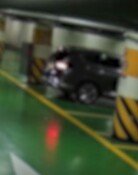Effectiveness of bans on Japanese food questioned
Effectiveness of bans on Japanese food questioned
Posted April. 12, 2011 00:00,
The Korean government has banned vegetable imports from four prefectures near Japan`s Fukushima nuclear power plant due to fears over radioactive contamination, but lacks a single case of vegetable imports from the region.
Critics say Seoul thus put in place an effectively useless import ban on foods that Korea does not import.
In contrast, no measures have been taken against processed Japanese foods in which iodine or cesium was detected in small quantities, raising suspicion over the Korean government. Processed foods, food additives and health supplements account for more than 99 percent of foods Korea imports from Japan.
Korea banned effective March 25 the import of spinach, kakina and parsley from Ibaraki, Tochigi and Gunma prefectures and most vegetables produced in Fukushima Prefecture. The ban followed Japans restriction of shipments of those products.
According to a report The Dong-A Ilbo acquired from main opposition Democratic Party lawmaker Joo Seung-yong, Korea imported no vegetables from the four prefectures last year prior to the earthquake. Rather, Korea imported processed foods amounting to 429,299 kilograms, including rice wine, vegetable and fruit juice, cookies and bread from the region.
After the earthquake hit, imports of rice wine took up the largest volume of 46,800 kilograms among foods imported from the four prefectures, followed by bread (3,942 kg), fermented soy sauce (3,660 kg), and caramel pigments (3,000 kg).
All the foodstuffs in which iodine was detected in small quantities harmless to the human body on March 30 were processed foods. They included rice wine from Hyogo and Tochigi prefectures and candy and fermented soy sauce from Tochigi.
Critics say the Korean government might have banned import of fresh produce instead of processed foods, which take up a far larger volume, due to excessive consideration of Korean food importers. Considering that Taiwan banned the import of all foods produced in Japan`s five prefectures near the Fukushima nuclear plant from March 25, skeptics say Korea took mediocre action.
A Health and Welfare Ministry official in Seoul said, We contacted importers of processed foods to consider imposing an import ban, only to face harsher-than-expected resistance.
International standards on permissible levels of radiation are stricter for processed foods than vegetables. Unlike vegetables, which are cleaned before consumption, people are likely to consume beverages even with radioactive materials.
Permissible levels of radioactive iodine as set by Japans Health, Labor and Welfare Ministry are 300 becquerels per kilogram for beverages, milk and dairy products per kilogram, and 2,000 becquerel per kilogram for vegetables. The permissible level of radioactive cesium on vegetables is also 2.5 times that of beverages (200 becquerels per kilogram).
On why only an import ban on fresh foods was placed, a Korea Food and Drug Administration source said, If no import ban is placed, such produce could be imported when Japan lifts restriction of shipments, and hence the ban was made pre-emptively.
The food watchdog also decided to levy additional import bans on agricultural products from Japan`s Chiba Prefecture. This measure was taken after Tokyo banned shipment of leafy vegetables and leafy and stalk vegetables produced in the cities of Asahi, Katori and Takomachi in Chiba Prefecture Monday.
The agricultural produce in question are leafy vegetables including lettuce, spinach, bokkchoy, crown daisy and parsley, and leafy and stalk vegetables including Korean leek, green onions, dropwort, bracken and asparagus.
Goh Song-boo, director of the Imported Food Division at the Korea Food and Drug Administration, said, Since the earthquake hit Japan, Korea has imported no agricultural products from Chiba.
As a result, areas in Japan from which Korea temporarily imposed import bans on products have increased to five. The agency is announcing daily the results of its radioactive testing on its website (www.kfda.go.kr).
woohaha@donga.com likeday@donga.com







